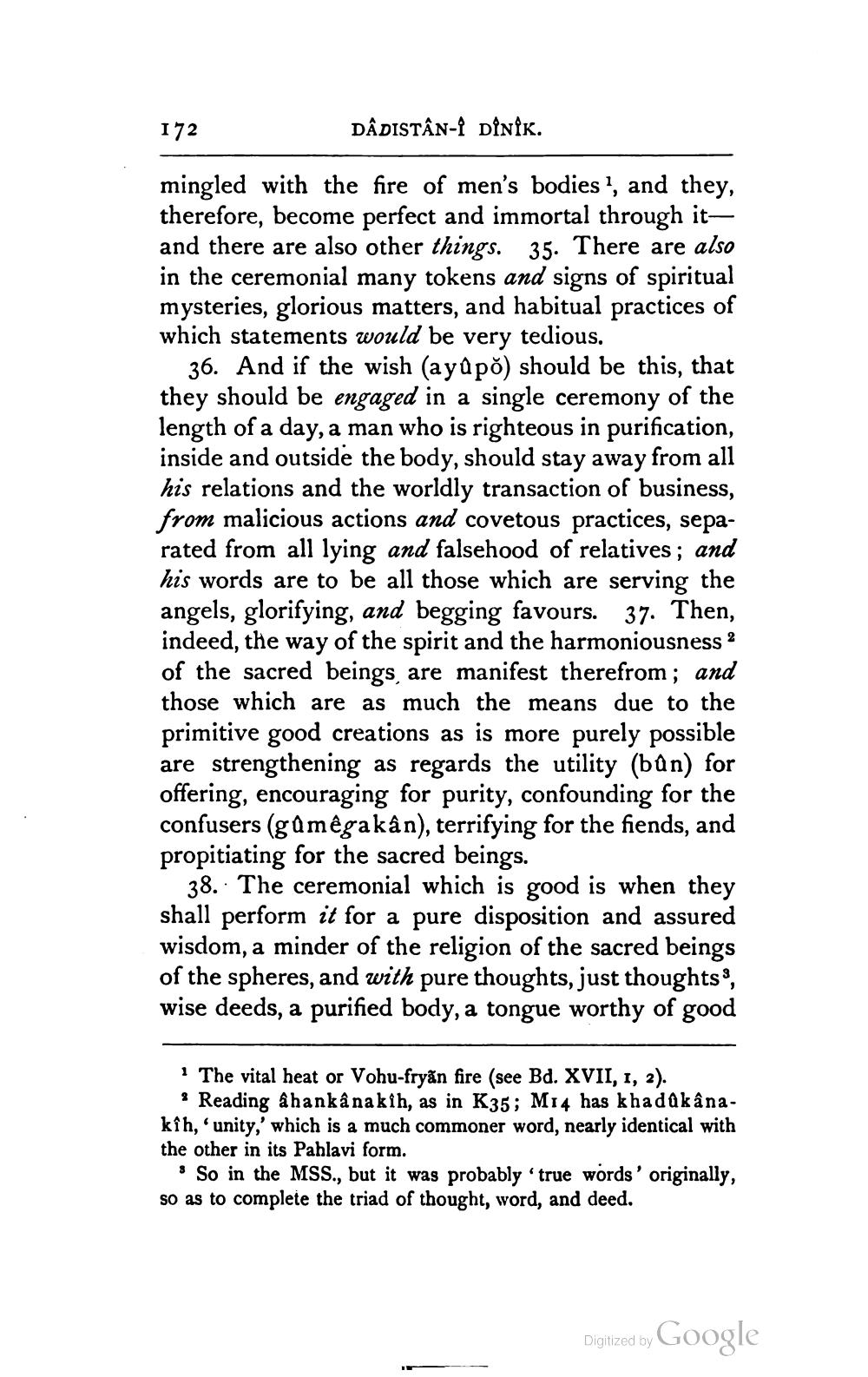________________
172
DÂDISTÂN-Î DÎNÍK.
mingled with the fire of men's bodies ?, and they, therefore, become perfect and immortal through itand there are also other things. 35. There are also in the ceremonial many tokens and signs of spiritual mysteries, glorious matters, and habitual practices of which statements would be very tedious.
36. And if the wish (ayûpó) should be this, that they should be engaged in a single ceremony of the length of a day, a man who is righteous in purification, inside and outside the body, should stay away from all his relations and the worldly transaction of business, from malicious actions and covetous practices, separated from all lying and falsehood of relatives; and his words are to be all those which are serving the angels, glorifying, and begging favours. 37. Then, indeed, the way of the spirit and the harmoniousness 2 of the sacred beings are manifest therefrom; and those which are as much the means due to the primitive good creations as is more purely possible are strengthening as regards the utility (bûn) for offering, encouraging for purity, confounding for the confusers (gūmêgakân), terrifying for the fiends, and propitiating for the sacred beings.
38. The ceremonial which is good is when they shall perform it for a pure disposition and assured wisdom, a minder of the religion of the sacred beings of the spheres, and with pure thoughts, just thoughts, wise deeds, a purified body, a tongue worthy of good
· The vital heat or Vohu-fryān fire (see Bd. XVII, 1, 2).
* Reading a hankânakih, as in K35; M14 has khadakânakih, 'unity,' which is a much commoner word, nearly identical with the other in its Pahlavi form.
• So in the MSS., but it was probably 'true words' originally, so as to complete the triad of thought, word, and deed.
Digized by Google




